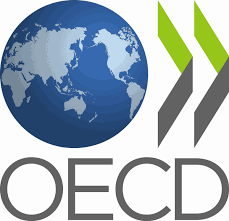
The OECD has recently its Development Cooperation Peer Review for Ireland, with an overview and recommendations on that country's development policy. One World, One Future is Ireland's Policy for International Development, adopted in 2013, consisting of three main goals and six broad priority areas of focus.Fighting poverty and promoting resilience, especially in fragile states, becomes a major focus of Irish development aid with this policy. Ireland is already well known for its comprehensive approach to fighting poverty, and for its dedication to gender equality and women's empowerment in its focus countries.
Main goals of Ireland's development policy are (I) hunger reduction and increased resilience, (II) sustainable development and inclusive economic growth, and (III) improved governance, human rights and accountability. Priority areas of One World, One Future are as follows:
- Global Hunger
- Fragile states
- Climate change and development
- Trade and economic growth
- Essential services
- Human rights and accountability
These goals and priority areas translate into an extremely ambitious action plan with 155 priority actions concentrated in Ireland's key partner countries, which are mainly concentrated in Sub-Saharan Africa and include Ethiopia, Lesotho, Malawi, Mozambique, Sierra Leone, Tanzania, Uganda, Vietnam and Zambia. Other development cooperation partners include Egypt, Kenya, Liberia, Nigeria, Palestinian Authority, South Africa and Zimbabwe.
One marked feature of Ireland's development policy is its aim to link its development, foreign, and commercial goals by focusing on inclusive economic growth and trade. However, one main critique of the OECD is the lack of clarity on how Ireland plans to deliver on objectives related to this goal of inclusive economic growth and trade through bilateral and multilateral programming in a coherent way. A major OECD recommendation is to focus on making this linkage clear and suggests using experience of the Development Assistance Committee members as a tool for doing this.
Other recommendations of the OECD include setting specific ambitions and priorities with regards to multi-lateral programming, translating this into a clear strategy for going forward, and making sure that allocations going to multi-lateral organisations follow this strategy.
Although improved governance is one of the pillars of One World, One Future, very little is specifically mentioned about local governments and the essential role that they play in development. With initiatives such as the UCLG Champions programme, UCLG and the CIB Working Group hope to continue to shed light on the vital role that local government and decentralisation play in the main areas of focus of not just Ireland's development policy, but the development policies of nations worldwide.
The complete OECD Peer Review for Ireland is available for online viewing.
